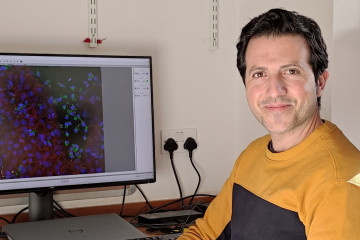Partnerships and impact awards
Long-term, self-maintaining primary 3D cultures of mouse and human epithelial tissues for reduction and replacement of animals in research

At a glance
Completed
Award date
June 2022 - May 2024
Grant amount
£74,306
Principal investigator
Dr David Fernandez-Antoran
Institute
University of Cambridge
R
- Replacement
Read the abstract
View the grant profile on GtR
